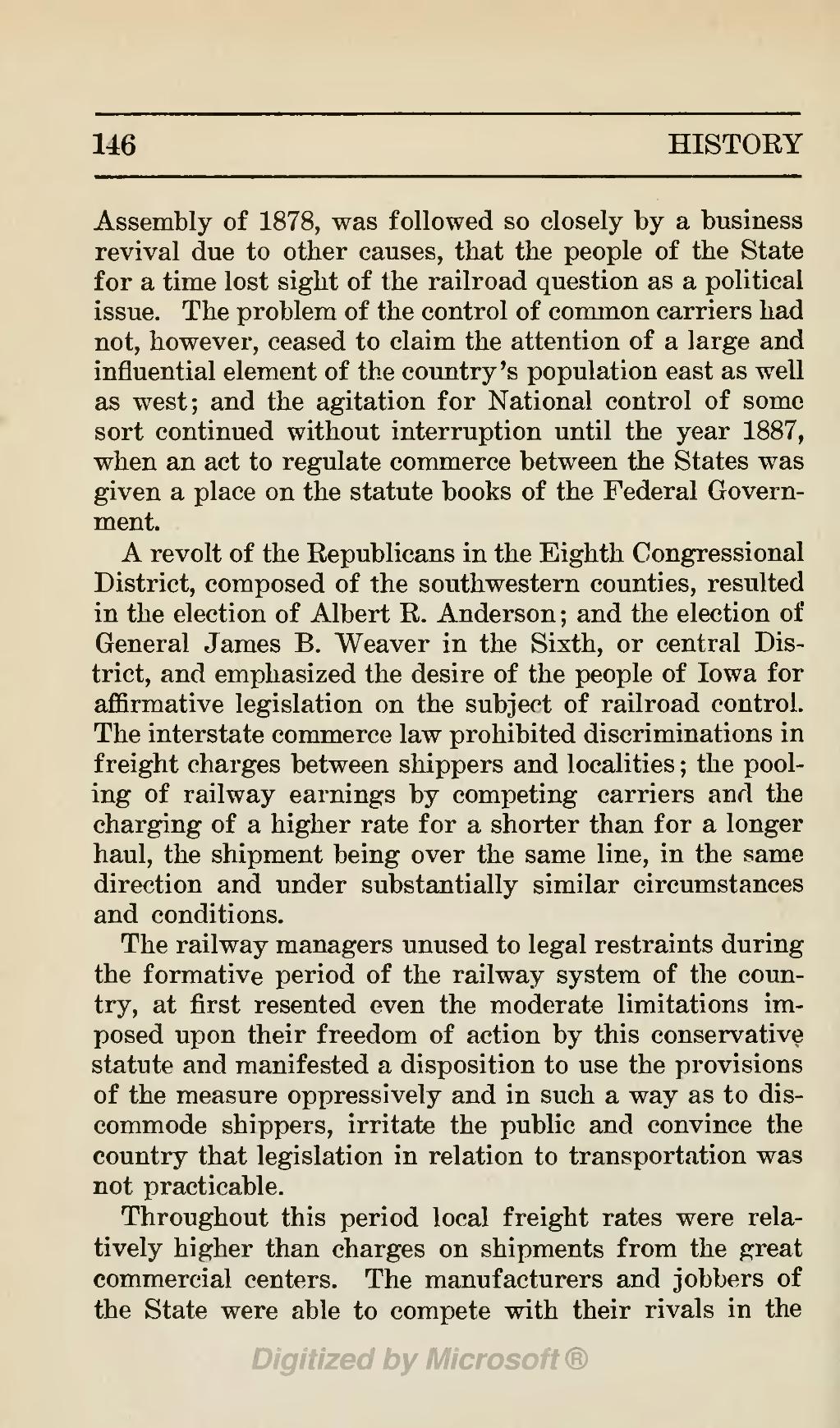Assembly of 1878, was followed so closely by a business revival due to other causes, that the people of the State for a time lost sight of the railroad question as a political issue. The problem of the control of common carriers had not, however, ceased to claim the attention of a large and influential element of the country’s population east as well as west; and the agitation for National control of some sort continued without interruption until the year 1887, when an act to regulate commerce between the States was given a place on the statute books of the Federal Government.
A revolt of the Republicans in the Eighth Congressional District, composed of the southwestern counties, resulted in the election of Albert R. Anderson; and the election of General James B. Weaver in the Sixth, or central District, and emphasized the desire of the people of Iowa for affirmative legislation on the subject of railroad control. The interstate commerce law prohibited discriminations in freight charges between shippers and localities; the pooling of railway earnings by competing carriers and the charging of a higher rate for a shorter than for a longer haul, the shipment being over the same line, in the same direction and under substantially similar circumstances and conditions.
The railway managers unused to legal restraints during the formative period of the railway system of the country, at first resented even the moderate limitations imposed upon their freedom of action by this conservative statute and manifested a disposition to use the provisions of the measure oppressively and in such a way as to discommode shippers, irritate the public and convince the country that legislation in relation to transportation was not practicable.
Throughout this period local freight rates were relatively higher than charges on shipments from the great commercial centers. The manufacturers and jobbers of the State were able to compete with their rivals in the
